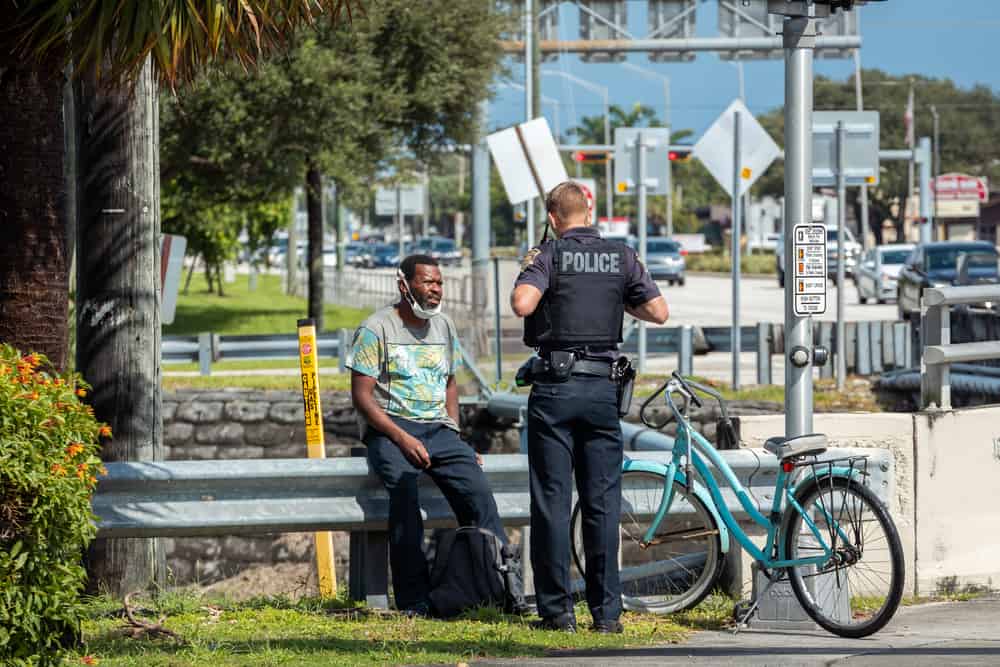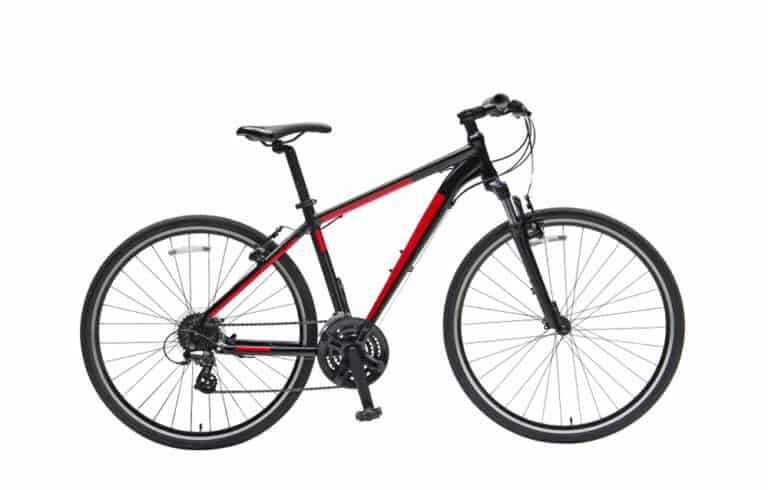Do Bicycles Need To Be Registered?

The idea of registering a kid’s bike, a road bicycle, or a trail bike might seem odd to some. You could possibly understand an e-bike needing to be registered since it’s in that gray area between a bicycle and a motorcycle. But your daughter’s little pink bike with sparkly tassels? Really?
The registration of bicycles is required in some – but not all – states across the United States of America. Federal laws exist for bicycling, but many states have their own bicycle laws. Examples of states that register bicycles include Hawaii, Oregon, Michigan, and California.
While the idea of bicycle registration has been around for some time, enforcing bicycle licensing has not always been practical or easy. However, some states and municipalities have managed it well. So what is the point of registering bikes, and who benefits from it in the end?
Which States Register Bicycles?
A state needs to consider certain variables regarding bicycle registration, including what type of bicycles should be registered, who is responsible for registering the bike, and the costs and personnel involved in managing the database and reinforcing the law.
As we know, there are differing federal, state, and municipal laws regarding registering a bicycle. While not every state demands that bicycles be registered, it is worthwhile remembering that you could be issued a fine for having an unlicensed bike even if you are visiting another state.
According to the Office of Research and Policy Analysis (ORPA) at the Montana Legislative Services Division, the following states include mandatory or voluntary bike licensing in their legislature:
| State | Law | Notes and Description |
|---|---|---|
| California | California Vehicle Code §39000-39011 | Cities and counties are allowed to license bicycles, but the state has to administer the process. Fees and fines are set at a maximum. Funds gained from registration must be spent on bicycle safety and improving bicycle facilities, including trails. |
| Hawaii | Hawaii Revised Statutes §249-14 Hawaii Revised Statutes §249-14.2 Hawaii Revised Statutes §264-18 | In Hawaii, all bicycles must be registered. The registration fee is $15, collected at the Point of Sale. If the bike was bought out of Hawaii, the funds are remitted to the country where the sale occurred. All funds go into the bikeway fund. State highway funds can be used for bikeways and bicycle registration. Hawaii generates about $400,000 annually from bicycle registrations. The money is used to support bicycle safety programs. |
| Illinois | Illinois Rev. Stat. Chapter. 95 § 625 ILCS 5/11-208 | Local authorities are granted the power to require and regulate the registration of bicycles. |
| Maryland | Maryland Transportation Code Ann. § 25-102 | Within the reasonable exercise of police power on a highway under his district, a local authority may regulate the operation of bicycles, requiring them to be registered and imposing a registration fee. |
| Michigan | Michigan Comp. Laws § 257.606 | Local authorities are granted the power to require and regulate the registration and licensing of bicycles. |
| Oregon | Oregon Revised Statutes §822.043 Section 92 | In 2019, Oregon raised $724,000 from bike registration and used some revenue for their Community Paths Grant Program unveiled in 2020. A registration fee (excise tax) of $15 is imposed on each sale of a taxable bicycle at retail. The registration fee is the liability of the purchaser of the taxable bicycle, and they should request an accurate record of the tax paid. The seller shall state the excise tax amount separately on an invoice, receipt, or similar document that the seller provides to the purchaser. A seller shall collect the registration fee (excise tax) at the time of the taxable sale. |
| Utah | Utah Code Ann. § 41-6a-208 | A city may require the registration and inspection of bicycles. A municipality may charge a registration fee. |
| Wisconsin | Wisconsin Statutes §349.18, sections 2 and 3 | Any municipality may require registration or registration fee for a bicycle. |
The Pros Of Registering A Bicycle
Some states or municipalities require you to register a bicycle to get an idea of how many cyclists each city has and prove property ownership. For instance, cyclists in Los Angeles would be fined for not showing the applicable registration documents for their bikes.
If your registered bicycle is stolen, you may be fortunate to get it back again if it is found. It should also make insurance claims or legal action easier, given that it is registered on your local municipal database as your property. Finally, as a theft deterrent, Milwaukee requires you to register each bicycle you own at a fee of $0. That’s right, zero dollars.
Bicycles are vehicles that share the road with other road users, so being licensed and identifiable might improve how cyclists use the road. In addition, a bicycle with tags or a license plate is more readily recognizable, meaning cyclists disobeying road rules can be reported and fined.
A municipality or state can use the money received from bicycle registration and fining cyclists with unlicensed bicycles to improve the quality and safety of cycling facilities in each city. For example, a municipality may be able to include a dedicated bicycle lane on busier roads.
In summary, the pros of registering a bicycle with a state or municipality include:
- Proof of ownership that the bike is yours should it be stolen.
- If your registered bicycle is stolen, it will help with an insurance claim or legal action.
- A cyclist riding a registered and identifiable bike might be more inclined to adhere to road safety rules.
- If a cyclist on a registered bicycle breaks road rules or endangers other road users, it will be easier to fine or prosecute them with evidence.
- Municipalities can use the money collected from bicycle registrations and fines to improve cycling infrastructure and safety for cyclists.

The Cons Of Registering A Bicycle
Registering a bicycle will cost you a few dollars each year that you might not want to spend. As mentioned, some states require it but allow the municipalities to decide how to do it. For instance, registering your bicycle might be a mandatory or voluntary process that may seem futile to many cyclists.
The fee of registering bicycles in a particular state or municipality might not be affordable to cyclists in lower economic brackets. Moreover, if the law is stringent, these potential cyclists might not want to risk riding an unregistered bicycle due to the fine they might receive. So they forego cycling as a means of transport altogether, thereby excluding them.
In some states, you pay a mandatory registration levy when you purchase a bicycle. The amount is added to the bike’s purchase price, making it more expensive. The seller (if it is a shop) is responsible for handing over this levy to the municipality. If the seller is unscrupulous, you may lose that money and ride an unregistered bicycle without realizing it.
Many states and municipalities have scrapped registering bicycles due to the labor and reinforcement of upholding this law. In addition, the income generated from the registration fee and fine collection does not cover the administrative costs of the personnel required to capture data and maintain the databases.
Deciding which bicycles to register is also problematic. For example, should a child’s bicycle or tricycle be registered? What if it was a hand-me-down or a gift? And what about trail bicycles that are not intended to be ridden in traffic or on public roads? As you can imagine, these gray areas could cause cyclists to get slightly upset about the whole idea.
Toronto stopped bicycle registration to avoid promoting the unconscious sense of intention to break the law in children. Since impressionable children often use bicycles, the idea of encouraging devious behavior and other bad public relations between police officers and children was not worth the effort and minimal revenue gained from registering bikes.
For example, in Perth Amboy in New Jersey in 2021, there was an incident involving the police and a group of boys riding unlicensed bicycles. The boys were unaware of the 50-cent annual bicycle registration fee; their bikes were confiscated, and one boy was arrested. The incident, unfortunately, turned into an aggressive and racial debacle.
In summary, some of the cons of registering a bicycle include:
- Some cyclists see it as futile and do not register their bikes.
- Registration fees and potential fines might exclude people in lower income brackets from cycling.
- Mandatory registration fees can be added to the purchase price of your bicycle, making it more expensive than expected.
- The labor costs and reinforcement of bicycle registration often outweigh the income generated by registrations and fines.
- Avoiding registration fees can encourage devious and law-breaking behavior and promote ill public relations between police officers and impressionable children.
Conclusion
Some states across the U.S. require the registration of bicycles mainly as a deterrent for theft but also to keep a tally of cyclists. For example, Hawaii and Oregon impose a mandatory registration state-wide. Still, most states allow their municipalities to decide on whether bikes should be registered and how much the registration fee should be.
References
- https://bikebiz.com/bicycle-licensing-for-dummies/amp/
- https://en.wikipedia.org/wiki/Bicycle_law_in_the_United_States https://www.bloomberg.com/news/articles/2021-04-23/the-biggest-problem-with-bicycle-licensing-laws
- https://leg.mt.gov/content/Committees/Interim/2021-2022/Transportation/21_Jan/Bicycle_registration_V3.pdf
- https://la.streetsblog.org/2008/09/17/yes-you-need-a-license-to-ride-a-bike-in-los-angeles/
- https://www.chicagomag.com/city-life/March-2015/Why-Bicycle-Licensing-Almost-Never-Works/







